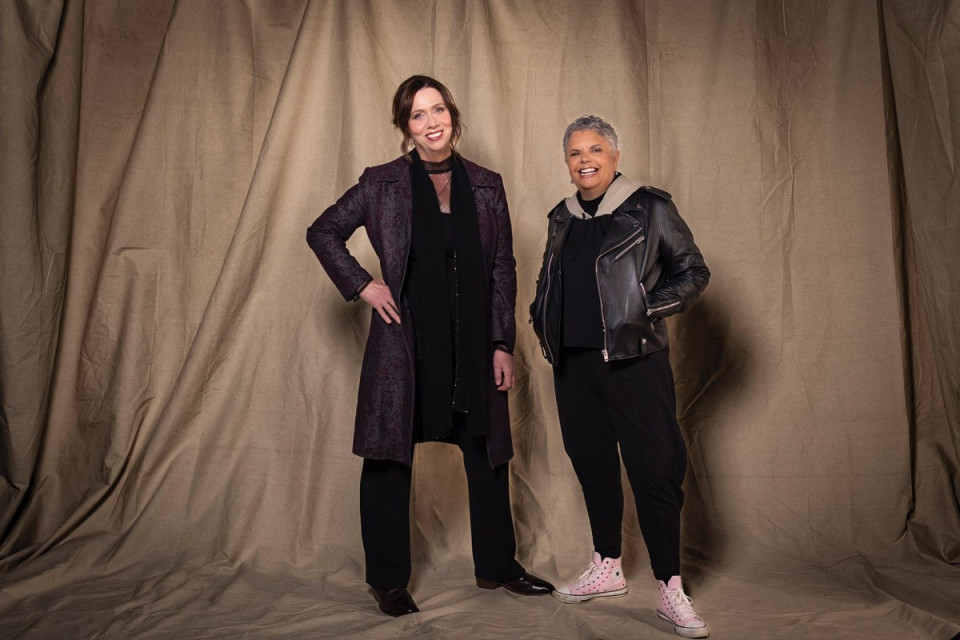Abundant Spring is the subtitle of one of the programs in the MSO’s 2023 season. But that word, “abundant”, could very well apply across the entire season. There is an abundance of talent, as well as an abundance of new and old works, international guests and opportunities to introduce fresh audiences. And there is an abundance of women – composers, conductors and performers.
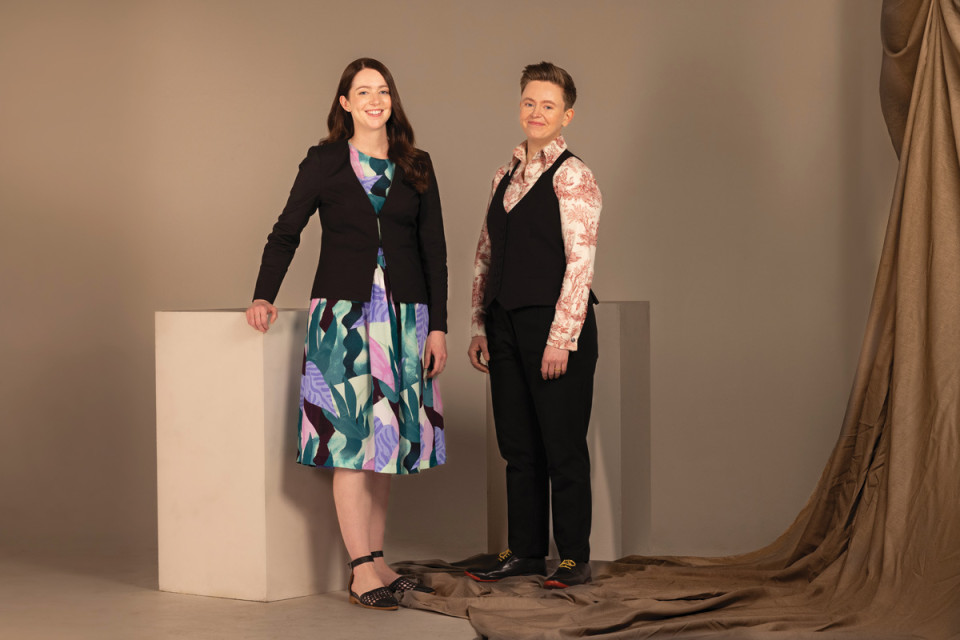
Here, we meet four of the women whose work contributes not only to the 2023 program, but to a vivid new chapter in the MSO’s history. The Orchestra’s 2020 pledge to strive for gender equality and cultural representation across the Board, staff and musicians and throughout artistic programming might still be in the early stages, but, with the likes of Deborah Cheetham AO, Mary Finsterer, Ingrid Martin and Melissa Douglas headlining this year’s season, it’s a commitment already making an impact.
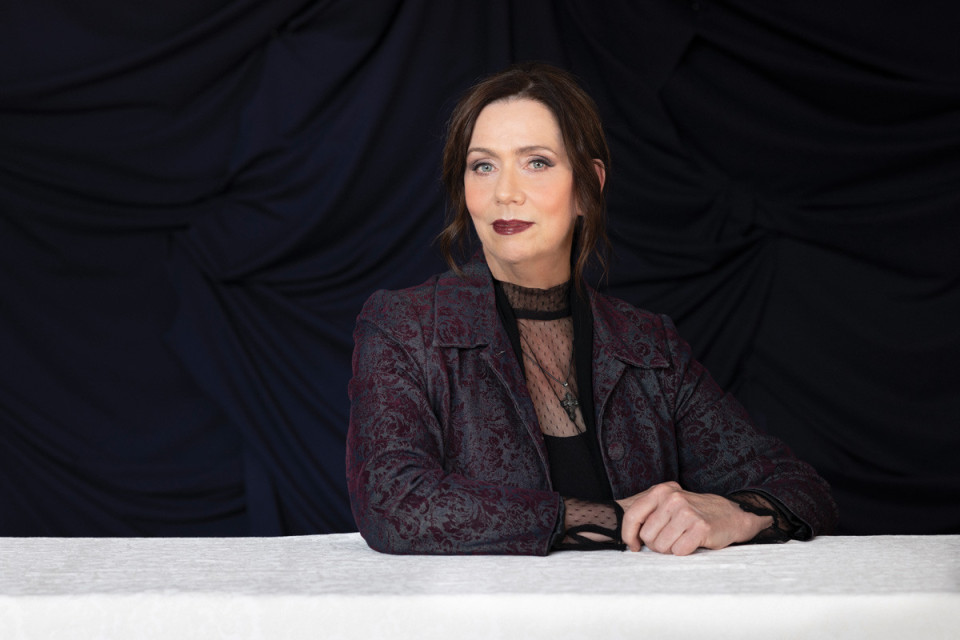
Mary Finsterer
Composer in Residence
“I was fascinated with music from an early age. My mother tells me that I hummed little tunes well before I learned to speak,” says Mary Finsterer, award-winning MSO Composer in Residence for 2023 and Creative Fellow for the College of Arts, Law and Education at the University of Tasmania.
Finsterer’s first encounter with formal music training was through the piano, coinciding with a love of drawing and painting. Eventually finding herself at a crossroads between choosing to pursue art or music after school, she decided on music. “It was the complexity of music that captivated me. Music is an interesting synthesis between being highly connected to our emotional life and equally anchored in technique and science. I chose to pursue composition to explore how these two worlds interconnect.”
“The music I write has an obvious place in the contemporary idiom, but its roots are deeply embedded in traditions as far-reaching as Gregorian chant,” says Finsterer of her 2023 season pieces LUMEN, MYSTERIUM I and STABAT MATER. “My aim is to reach into the past, not for artefacts or museum pieces, but to bring the essence of past stylistic practice into the present day through rediscovery and invention.”
While Finsterer explains that for her, the work itself is of importance regardless of the age, gender or nationality of the composer, she also acknowledges the significance of the MSO’s Keychange Pledge calling for equity in the music industry, an initiative of which the MSO was the first professional Australian orchestra to take part. “I am fortunate to have had a female role model in my mother who taught me to believe in myself. There are glass ceilings everywhere and, like many, I’ve had to reach within myself to find a response to the given situation. The MSO are extremely thoughtful in their approach to fairness and equity. It’s something of which we always need to be mindful of, in all areas.”
Mary Finsterer’s position as MSO Composer in Residence in 2023 is supported by Kim Williams AM.
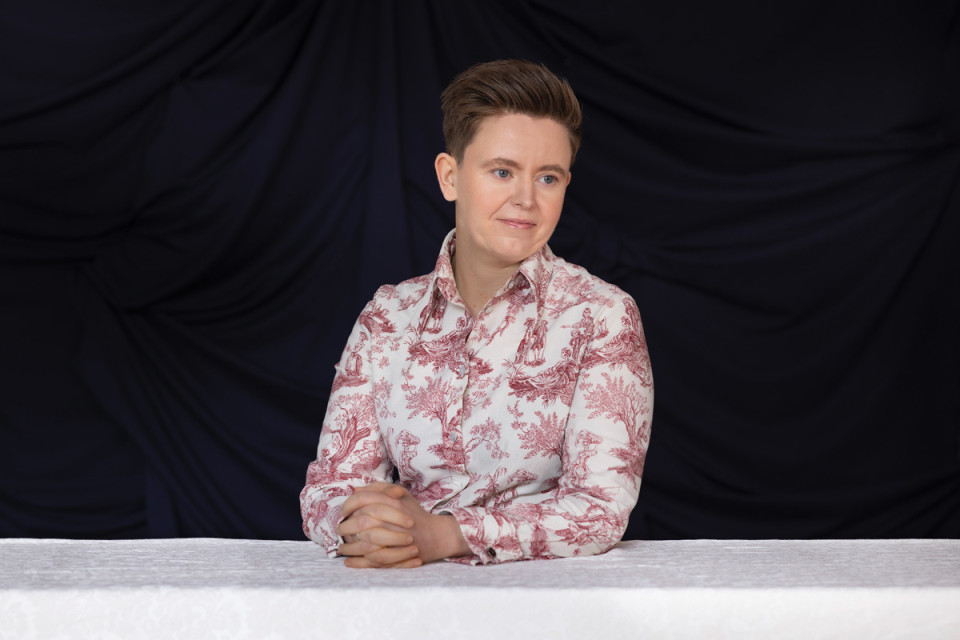
Ingrid Martin
Conductor
At 14, Ingrid Martin was gifted a subscription to the MSO. She’s been attending ever since, and next year will conduct a number of programs for the 2023 season. “Teenage me would never have imagined I’d be the person up there conducting. It’s a full-circle moment. I feel as if I’ve been part of the MSO family for a long time.”
But that full-circle moment was never a given. “I got into medicine after school and naively thought, ‘Well, I’ve done music, I kind of know how to do that,’ and medicine seemed like something new and I could continue to do music on the side. But eventually the pull just became too strong – I couldn’t deny it. I did a Masters in conducting in the US and hung up my stethoscope. I came back and did a lot of freelance conducting and teaching. It’s been a slow burn but a real dream come true to conduct the MSO.”
And, for Martin, the experience is made more exciting by the MSO’s push for gender parity. “When I was a kid coming to the MSO, I never saw a woman on the podium. And now look at the 2023 season; it’s a huge step forward.”
But gender parity isn’t the only form of improved representation Martin is celebrating. “There is a long precedent of Australian orchestras not employing Australian conductors. I love the fact that I get to say I’m from Melbourne and I grew up watching this Orchestra. I know the players, I know the programs, I’ve been watching them for years. It’s important that other Victorians can see it’s possible.”
As well as the prospect of conducting “bangers” like Stravinsky’s The Firebird to a new audience as part of the Imaginations Ignited concert for first-time audiences in April, Martin is looking forward to the opportunity to introduce new listeners to the orchestra. “To me, the greatest joy is getting a newcomer to fall in love with the music, to walk away from a performance changed in some way.”
But she’s eager for those potential new fans not to be put off by the pressure of having to “get” classical music. “You don’t have to like everything. People new to it can get shamed into thinking that if their mind wanders in a concert then they haven’t properly understood it. But all the research shows this is completely normal – it happens to everyone, even the most experienced concert-goers.”
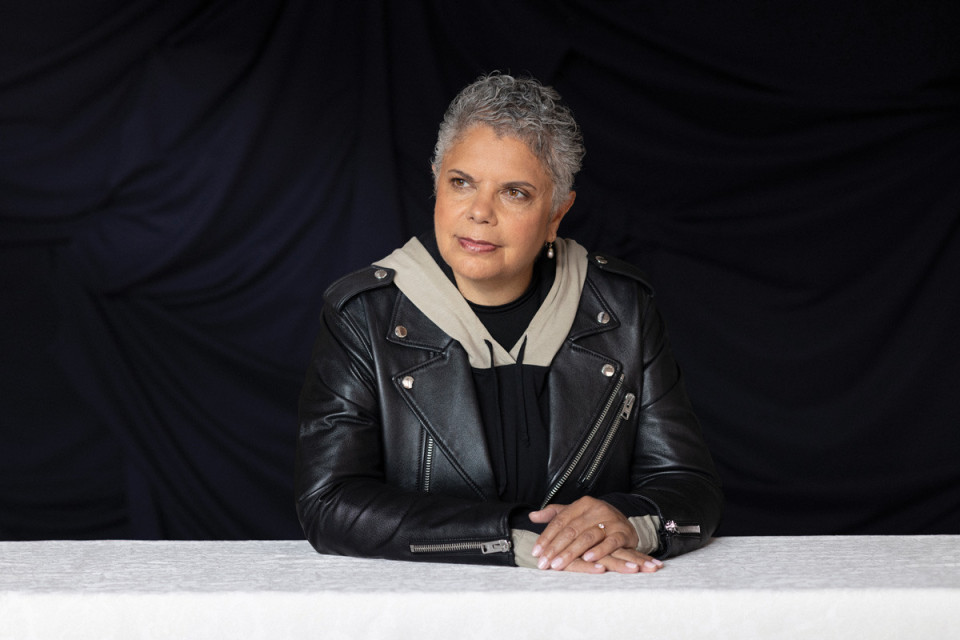
Deborah Cheetham Fraillon AO
First Nations Creative Chair
“My earliest memory is of leaning up against my mother in church and feeling her breathing as she sang,” says Cheetham. “I can’t remember a time when music wasn’t in my life. As a young child, I would sing the narrative of my life. For children especially, it’s a natural way of knowing and experiencing the world and it was a very important part of how I could be in the world.”
A music teacher and mentor in high school helped harness Cheetham’s energy and passion, and she trained first as a flautist and then as a pianist. Australians will of course know her also as a much-honoured and awarded soprano, composer and creative force across the arts.
As the MSO’s First Nations Creative Chair, she is energised by the organisation’s dedication to more fulsome gender and cultural representation. “I’m incredibly proud that the MSO sees the value in having a deeper connection to and representation of the society it serves, and of harnessing the great riches of a multicultural nation and musical tradition that goes back way beyond 230 years. To deny all of that in favour of some antiquated model of music-making and limited catalogue of repertoire would seal the fate of many an organisation.
“But with the MSO, you have a group of people who are saying, ‘We didn’t know, and now we’re finding out.’ And that is an exciting space to walk into.”
The 2023 season will include the MSO’s second production of Cheetham’s large-scale symphonic and choral work, Eumeralla, a War Requiem for Peace, which sees it become part of the Orchestra’s core repertoire following the highly successful symphonic premiere in June 2019. The inclusion of Eumerella is a clear demonstration of commitment that Cheetham sees as more vital than ever. “We need to give the 97 per cent of Australians who aren’t First Nations the confidence to have well-informed conversations.”
Such a work, she explains, can play a role in the process of moving from knowledge to true understanding of the shared history between Indigenous and non-Indigenous Australians.
“I like to imagine – in that wonderful hall, along with our loyal supporters, there will be a child in the audience attending for the first time and for whom the inclusion of women and First Nations composers in the program comes as no surprise. Commission the works, choose the best, program them, and for a whole new generation, that will be the way it’s always been.”
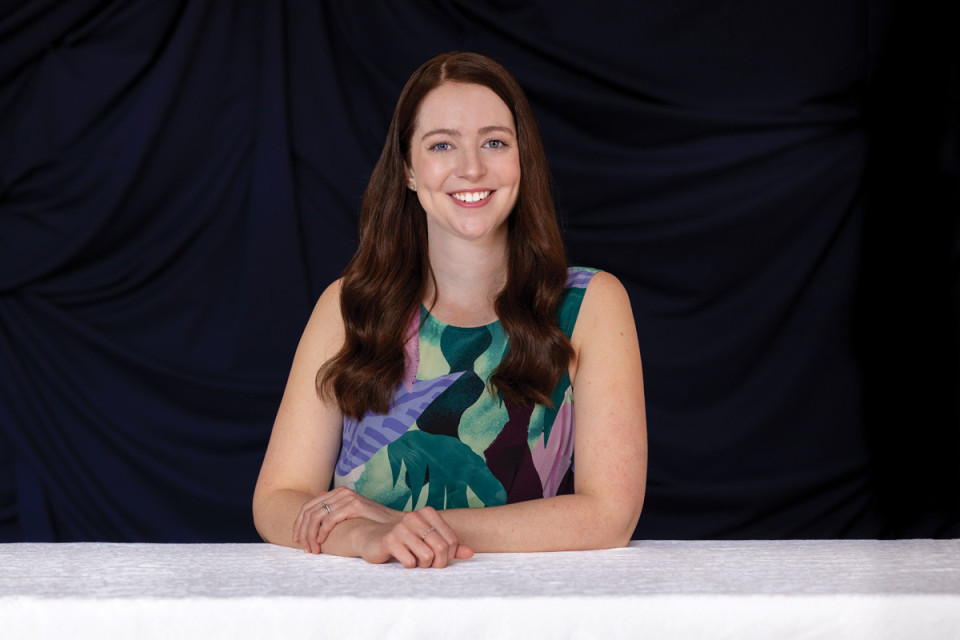
Melissa Douglas
2023 Cybec Young Composer in Residence
“As a child I would run into the lounge room and lie on the floor to listen to whatever was playing,” recalls Melissa Douglas, the Cybec Young Composer in Residence for 2023. “When my older siblings played instruments, I was always drawn to the sound. Then when I started studying piano, I would play whatever music I could find. I was so keen to learn more pieces, researching sheet music, sight-reading through my mum’s old music at the piano. As well as piano, I was fascinated by composing and the whole process of creating music.”
Douglas was selected from the finalists of the 2022 Cybec 21st Century Australian Composers program, and the year-long immersion will allow her to work on three new commissions. “It’s rare to work with an orchestra for more than one project due to the nature of commissions so this is an incredible opportunity to develop more of a relationship with the musicians through a year-long residency provided by the MSO – it’s a real gift, especially with such an exceptional orchestra.” Her first piece of the season is a fanfare and presents an opportunity for a shift in direction and tone. “A couple of my recent pieces were more atmospheric, melancholy or rhythmically ambiguous, whereas this new fanfare I am working on has a bright character and is much more direct.”
“I want to keep developing my musical craft and become a better composer. For me, it’s helpful to focus on the music and on the skills we bring regardless of gender,” she says.
“But it is fantastic that the MSO is promoting diversity across different areas. More women are studying composition and we are gradually unearthing more of the work of women composers from history. It is an exciting time.”
Melissa Douglas’ position as MSO’s Cybec Young Composer in Residence is proudly supported by the Cybec Foundation.
Photography by Dean Golja & styling by Joel Parkinson.
This article appears in Encore: The Melbourne Symphony Orchestra Magazine.
